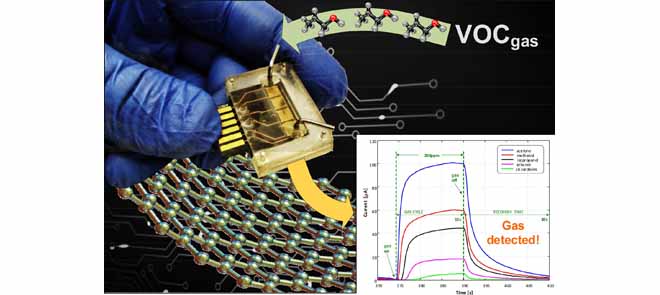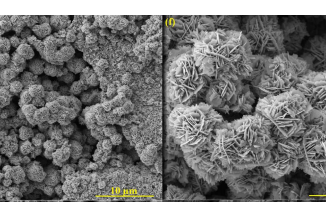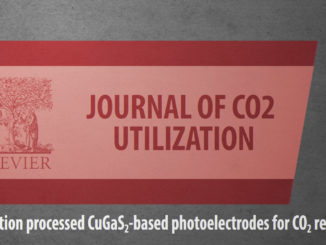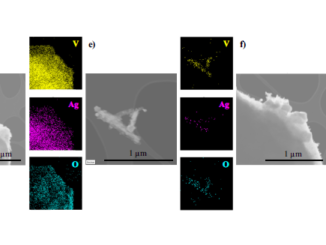
Graphite-Based Multianalyte VOC Gas Detection on Multichannel PCB IDE Sensor
Abstract: In this article, we present the development of a volatile organic compound (VOC) gas sensor based on graphite on a printed circuit board (PCB) multiplexed interdigitated electrode (IDE) sensor. We report the effects of graphite as a sensing material deposited by the spray method and its interaction response to specific gases. In addition, we demonstrate how we designed and manufactured IDE sensors with an integrated heating circuit and thermistor element, as well as the 55- μL microchamber, which contributed to the fast detection of gases. All experiments were performed with four IDE sensors to verify the reproducibility and sensitivity of the proposed methodology. Our results highlight that acetone presented the highest detection sensitivity, with an electric current increase of ± 100 μA at a 200-ppm cycle with a response of 0.92 s and full recovery at 2.62 s. Furthermore, the developed sensors were able to detect and distinguish between acetone, methanol, isopropanol, ethanol, and chloroform gases. The sensors exhibited outstanding stability and repeatability when evaluated after six months. The sensors’ operation at 2 V makes it suitable for low-power devices with a high potential to be applied in future commercial room-temperature VOC gas sensor devices.
Author(s): de Campos da Costa, J. P.; Cichetto Junior, L.; de Araujo, E. P.; Arantes, A. d. N.; Longo, E.; Chiquito, A. J.; Carmo, J. P.
Ieee Sensors Journal
Published: 15 November 2022, Volume: 22, Issue: 22
DOI: 10.1109/JSEN.2022.3210007
CDMF
The CDMF, hosted at the Federal University of São Carlos (UFSCar), is one of the Research, Innovation and Dissemination Centers (RIDC) supported by the São Paulo State Research Support Foundation (Fapesp), and also receives investment from the National Council Scientific and Technological Development (CNPq), from the National Institute of Science and Technology of Materials in Nanotechnology (INCTMN).




